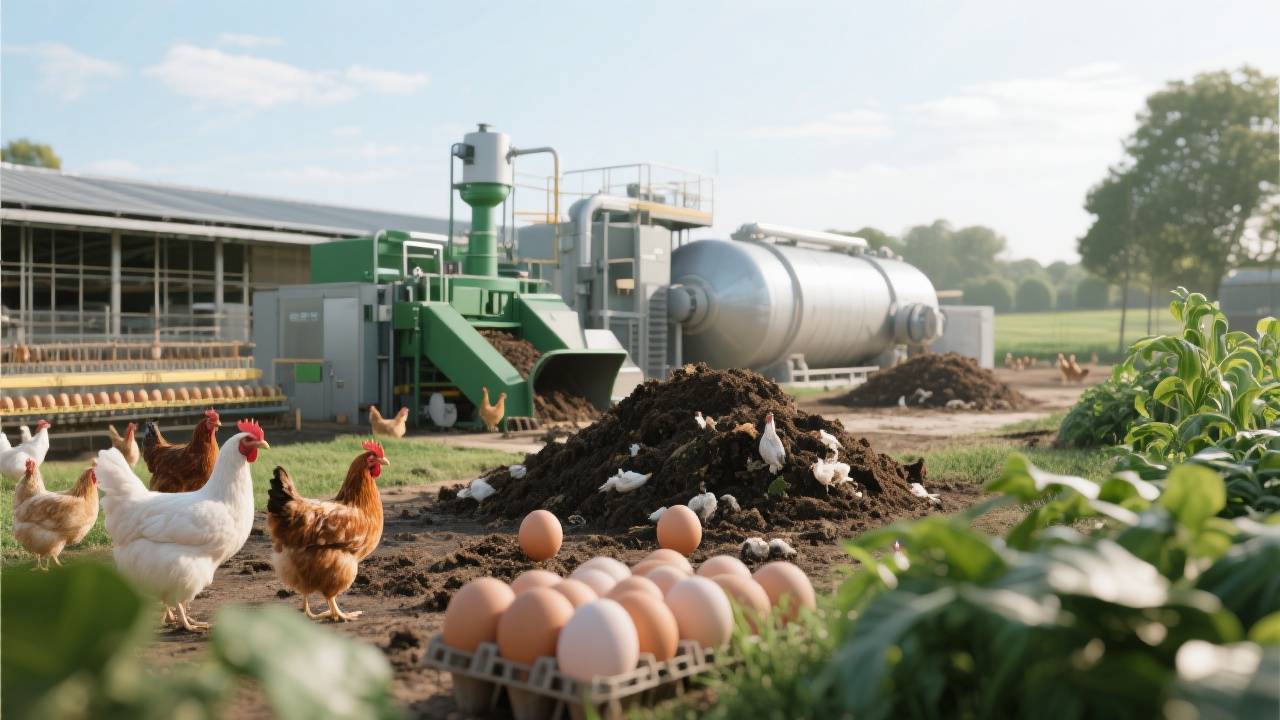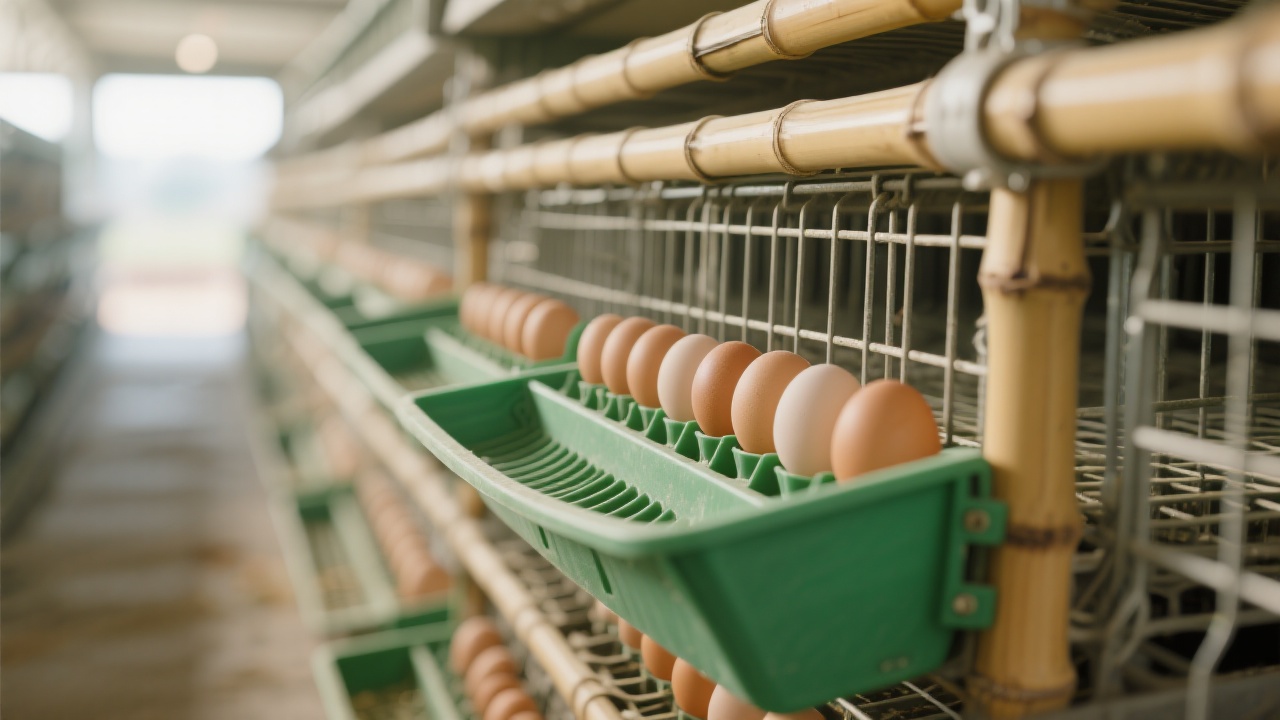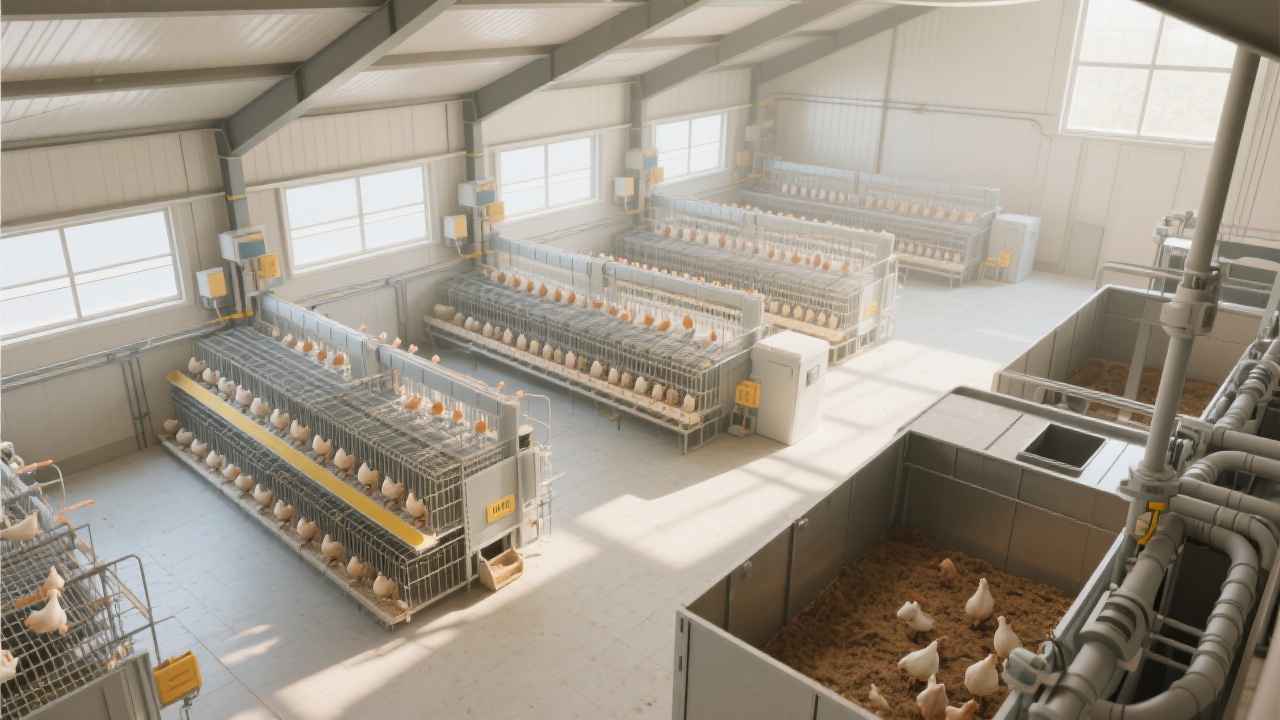
In large - scale laying hen farming, choosing the right manure cleaning technology is crucial for energy - saving and environmental protection. Two mainstream technologies are the scraper - type and screw - conveyor type manure cleaning systems.
The scraper - type manure cleaning system operates on a simple yet effective principle. It uses scrapers that move along the manure channels, pushing the manure towards a collection point. This technology is suitable for relatively flat and long manure channels. In fact, in many large - scale farms, the scraper - type system can clean up to 90% of the manure in a single pass. The screw - conveyor type system, on the other hand, uses a rotating screw to transport the manure. It is more suitable for areas with limited space or complex layouts, as it can transport manure vertically or horizontally. This system can achieve an efficiency of about 85% in manure removal.

The H - type chicken cage structure is designed to optimize the manure cleaning process. The unique structure of the H - type cage allows for a more efficient and thorough cleaning. The scraper - type and screw - conveyor type systems can be perfectly integrated with the H - type cage. For example, the scraper can easily reach every corner of the cage, reducing the risk of manure accumulation. According to research, when using an H - type cage combined with an appropriate manure cleaning system, the amount of accumulated manure can be reduced by up to 80% compared to traditional cage systems.
This not only reduces the labor intensity of farmers but also significantly reduces the potential for ammonia over - standard. Ammonia is a common problem in chicken farms, which can cause respiratory problems for chickens and pose a threat to the health of farm workers. With the H - type cage and efficient manure cleaning system, the ammonia concentration in the chicken house can be reduced by 30% - 40%.

Automated manure cleaning systems play a key role in manure resource utilization. The manure collected by these systems can be used to produce organic fertilizers. Organic fertilizers are in high demand in the agricultural market due to their environmental - friendliness and soil - improving properties. By producing organic fertilizers, farmers can not only reduce the environmental pollution caused by manure but also create an additional source of income. For example, a medium - sized chicken farm can produce about 50 - 100 tons of organic fertilizer per year, which can bring an additional income of tens of thousands of dollars.
Complying with the ISO14001 environmental management standard is becoming increasingly important for chicken farms. An efficient manure cleaning system can help farms meet these standards. By reducing ammonia emissions, achieving efficient manure cleaning, and promoting manure resource utilization, farms can enhance their environmental performance. This not only improves the farm's compliance but also enhances its brand reputation in the market. A farm that meets ISO14001 standards is more likely to gain the trust of customers and partners.

To illustrate the effectiveness of these manure cleaning systems, let's take a look at a real - world case. A large - scale chicken farm in the United States adopted an automated manure cleaning system combined with an H - type chicken cage. After the implementation, the ammonia concentration in the chicken house decreased by 35%, and the amount of accumulated manure was reduced by 75%. The farm was also able to produce a significant amount of organic fertilizer, which was sold to local farmers. This not only improved the farm's environmental performance but also increased its economic benefits.
We hope this article has provided you with valuable insights into manure cleaning systems in laying hen farming. If you have any questions or need more information, please feel free to leave a comment below. We will do our best to answer your questions.

